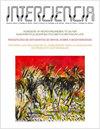评估CEFR框架下的土耳其中小学英语课程:教师视角
IF 0.4
4区 综合性期刊
Q4 ECOLOGY
引用次数: 0
摘要
土耳其中小学目前的英语课程是由《欧洲共同语言参考框架》(CEFR)制定的,目的是在语言教育方面引入一种更加以交流为导向的观点。本研究旨在从教师的角度来评估CEFR框架课程在课堂上的应用。采用探索性顺序混合方法研究设计,包括40项问卷(100名参与者)、25项半结构化访谈(6名中学教师和3名小学教师)和文献分析,在伊斯坦布尔Sultanbeyli、Umraniye和Besiktas地区的中小学进行。结果表明,对CEFR知识的缺乏以及教室拥挤、课堂接触时数有限等情境因素对课程实施阶段的影响较大。研究还发现,语言教育政策(以交流为导向)与课堂实践(以考试为导向)之间存在显著的不匹配。本研究结果暗示教师需要持续的在职培训,以提高他们对CEFR框架课程在课堂上实施原则的理解。本文还讨论了这项研究的影响,最引人注目的是需要量身定制的在职培训。本文章由计算机程序翻译,如有差异,请以英文原文为准。
Evaluation of the CEFR framed English language curriculum in primary and secondary schools in Turkey: teachers` perspectives
The current English language curriculum in primary and secondary schools in Turkey has been framed by The Common European Framework of Reference for Languages (CEFR) in an endeavour to bring in a more communication-oriented perspective on language education. This study aimed to evaluate the CEFR framed curriculum from the perspectives of teachers who apply it in the classroom. An exploratory sequential mixed method research design, which encompassed a 40-item questionnaire (100 participants), a 25-item semi-structured interview (6 secondary and 3 primary school teachers), and document analysis, was employed in primary and secondary schools in Sultanbeyli, Umraniye, and Besiktas districts of Istanbul. The results showed that lack of knowledge about the CEFR and the contextual factors such as overcrowded classrooms and limited class contact hours greatly affected the implementation phase of the curriculum. It was also revealed that there is a remarkable mismatch between the language education policy (communication-oriented) and the classroom practices (exam-oriented). The findings of this study implied that teachers need ongoing in-service training about the CEFR framed curriculum to enhance their understanding of the implementation of its principles in the classroom. The implications of the study, most notably the need for well-tailored in-service training, are also discussed.
求助全文
通过发布文献求助,成功后即可免费获取论文全文。
去求助
来源期刊

Interciencia
综合性期刊-生态学
CiteScore
0.80
自引率
25.00%
发文量
1
审稿时长
4-8 weeks
期刊介绍:
Interciencia is the monthly multidisciplinary publication of the INTERCIENCIA Association. It is dedicated to stimulate scientific research, its humanitarian use and the study of its social context, specially in Latin America and the Caribbean and to promote communication between the scientific and technological communities of the Americas.
Interciencia has been published uninterruptedly since 1976. Its Founding Director, Marcel Roche (endocrinologist and sociologist of science) was editor until 2008, and thereafter Miguel Laufer (neurobiologist) has been in charge. It has been included since 1978 in the Science Citation Index and other international indexes, and since 2008 it maintains an open access electronic version with material from 2005 onwards.
The priority areas of the journal, without exclusion of other areas, are Agronomy, Arid Lands, Food and Nutrition, Biotechnology, Ecology and Environment, Energy, Innovation and Technology Transfer, Marine Resources, Non-renewable Resources, Science Education, Science Policy, Study and Sociology of Science, and Tropical Forests.
Interciencia publishes in Spanish, Portuguese and English research and review articles, communications and essays, all of which are subjected to peer review. Additionally, it includes non-refereed sections such as Editorial, Letters to the Editor, Open Town Hall, Book Reviews and Upcoming Events.
All the material submitted to the journal for publication and accepted by the Editorial Committee in view of its quality and pertinence is subjected to review by peer specialists in the corresponding fields of knowledge. Neither the INTERCIENCIA Association, nor the journal or the institutions to which the authors belong carry responsibility for the contents. Signing authors are responsible for the material published under their names.
 求助内容:
求助内容: 应助结果提醒方式:
应助结果提醒方式:


